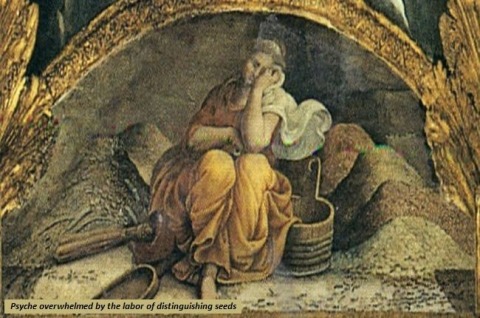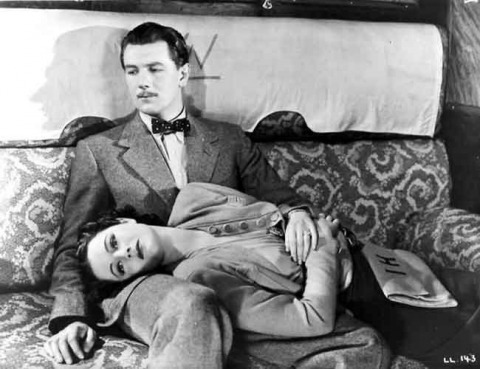
The Underground Thomist
Blog
Lying for Life? ContinuedWednesday, 07-29-2015
This question is from a doctoral candidate at the University of Maastricht, Netherlands. Question:I am fond of your blog and visit it frequently. Nevertheless, I write to you out of concern with your latest blog post. I think it unnecessarily condemns an action that is just and hence risks constituting an injustice. The state in which decent people find themselves in relation to abortion is akin to one of war (it is way past the line of civil disobedience). The rules of war have generally accepted all sorts of deceptions, and it would be strange to assume that these deceptions are lies. I do think that criminals don't have a right to the truth in certain contexts, but this can be disputed. Nevertheless, if this principle is disputed there is a much weaker principle in play, that one cannot lie when there is no reasonable expectation for truth. Deceptions in games and in war are not lies. And a person who ignores the nature of the situation has no one to blame for falling into deception. In any case, I don't think it is worthwhile to pursue this sort of casuistry here. Although I have not read your work (beyond your blog) I think the appeals to what is "evident" and "written in the heart" are good ways to illuminate natural law thinking. If this is so, the justice of the actions taken is as clearly written in the heart as any other thing. Reply:Thank you; I’m glad you enjoy the blog. We agree that abortion is evil and we agree that it must be fought. After that, we differ. To borrow the words of M.L. King, I insist that the means we use must be as pure as the ends we seek; no one may use evil means to combat evil. You aren’t very clear here. For example, you do not quite say we may use evil means to combat evil. But you seem to say that if good results, then the means are not evil – which comes to the same thing. This is not natural law thinking; it is pure consequentialism. But even setting aside the red herrings in your letter (for example, I did not argue that all deceptions are lies, or that all deceptions are unjust – quite the contrary), your letter presents several grave danger signals. One is your scorn of necessary moral distinctions, which you call “casuistry” which is it not “worthwhile to pursue.” As soon as we get past the basics, such as “Do good and avoid evil,” morality is nothing but the drawing of necessary distinctions. I may have drawn them incorrectly, but you hardly make a case for that view by saying that they need not be drawn. Another is your doctrine that we are at “war,” which is especially alarming considering the fact that you do not follow the doctrine of just war (which does make distinctions). If you did, you would know that war may be waged only by competent public authority, and that you are calling not for soldiers, but for vigilantes. If these vigilantes may lie to combat evil, what else may they do? May they burglarize? May they kidnap? May they commit arson? Would you say that arson by a vigilante is not arson, as you say that lying in what you call “war” is not war? The final one is your distortion of the doctrine of the law “written on the heart,” which does not mean, as you think, that whatever in the heat of the moment you consider “evident” is really true. But since you do challenge me in the name of the law written on the heart, let me call attention to one of the things I think we will find written there. Fiat justitia ruat caelum: “Let justice be done, though the heavens fall." If this is true, then we may not commit injustice for any reason. Even against injustice, we must use just means. You don’t exactly deny the fiat. How could you? It is written on your heart too. But you treat it as meaning that to make sure justice is done, we may do whatever it takes – we may even commit injustice. To stop those who do evil, we may become just like them. Unfortunately, in this case, injustice has not been stopped at all. We have merely joined its perpetrators. So it seems to me that you have illustrated the point with which I concluded yesterday’s post, when I wrote that there lies the edge of an abyss. This is why it is so important for both of us not to despair of the help of God.
|
Lying for Life?Tuesday, 07-28-2015
Question:My question regards the recent videos showing officials of the organization dickering over lunch about the prices of aborted baby body parts with persons they thought were procurement agents for firms which buy such things, but who were really activists conducting “stings.” I'm very glad that the videos are out there, not so much because they reveal that planned parenthood is doing something illegal, but because they reveal the moral corrosion of people who work in the industry. The videos horrify me because of the casual way these officials talk about abortions -- for example about using methods which aren’t as "crunchy” so that the body parts will be more intact. It isn’t about tone. It’s about moral evil. My question, however, concerns the methods used to obtain this footage. Is lying to obtain this footage justified? Does it undermine our cause? I'm not in any way denying how powerful these videos are in shedding light on evil practices, but I wonder if such tactics discredit our calls for truth telling. I really don't know the answer. Reply:The way the abortion trade corrodes the souls of those involved in it appalls me too, and I am glad –- so to speak -- that some of this evil has been exposed. But that is not what you are asking. Your question concerns the means. According to a very long tradition, it is wrong to do what is intrinsically evil so that good will result, and lying is intrinsically evil. This is easy to misunderstand. Not all forms of deception are evil; for example, the tradition has held that one may licitly set an ambush in a just war. Moreover, merely withholding the truth -– by silence, by vagueness, or by equivocation -– is not necessarily evil (although it can be in some cases). The question, then, is what lying is. Lying has traditionally been defined as deliberately saying what one knows to be false with the intention to deceive. The justification of this definition is straightforwardly teleological. As one of the subordinate powers of rational beings, the power of language has an inbuilt purpose which surpasses any motive we might bring to the act. Speech must never be used in a way which makes it an enemy of truth. If this definition is complete and correct, then what the agents provocateurs did to expose Planned Parenthood’s evils was lying, and should not have been done even for the sake of the good result that it achieved. One must not lie to expose lies. However, some who are sympathetic to the methods of the sting operations argue that the traditional definition should be understood as including a tacit proviso, such that lying is deliberately saying what one knows to be false with the intention to deceive someone who has a right to the truth. In this way they argue that what the agents provocateurs did was not lying, because the Planned Parenthood criminals did not have a right to the truth. In my opinion the agents provocateurs were indeed lying. But even if I am mistaken – even if they were not lying -- their methods are not ethically in the clear. Why? Whether or not deliberately saying what one knows to be false with in the intention to deceive is a complete definition of lying, it certainly corresponds to what people in general understand lying to be. This makes the act a moral stumbling block, what used to be called a “scandal.” By exposing abortionist lies even by telling what merely seem to be lies, one encourages the view that the defenders of life are no more honest than the murderers, and at the same time promotes the idea that one may do evil for the sake of good. I understand the awful sense of desperation -- temptation often feels that way. But there lies the edge of an abyss.
|
You Mean It’s Supposed to Mean Something?Monday, 07-27-2015
Mondays are reserved for letters, and yes, these are both real letters. I received them some years ago when I was writing an online column just for college students. Question #1:Hey. If you tell a person of the opposite sex "I love you," is engagement expected to follow closely thereafter? My girlfriend is hurt because it's been seven months since I first told her "I love you," and I haven't yet proposed. She buys into the idea that a man shouldn't keep a girl waiting too long for a proposal. Also, when you say the words, "I love you," does it mean you should accept the person faults and all, rather than nit-pick and question his behavior? Reply #1:To use the word "love" for a mere feeling — as you seem to have done — is careless and cruel. Authentic love is not a feeling, but a permanent commitment of the will to the true good of the other person. In a romantic context, therefore, the words "I love you" mean "I have resolved, if you will have me, to give the rest of my life to you alone.” They are properly used only as a preamble to proposing, with marriage to follow shortly, and to speak them when no such intention has been formed is to use a woman's heart as your plaything. A century ago, when people still knew how to deal with cads, you would have been horsewhipped by her father on the steps of your favorite hangout, and your only hope of redeeming your reputation would have been to submit meekly and publicly to the punishment. In our time that option is no longer available, but if you have any decency at all you will confess to her that you've been stringing her along. I take it that the occasion of your second question is that she replied "I love you, too," and now you think you are beyond criticism. When a man loves a woman, he is more aware of his faults than of hers, and he ardently desires to become better for her sake. The answer, then, is that she doesn't have to accept all your faults; she doesn't have to accept you at all. Try to be more worthy of your next girlfriend, because if this one catches on she'll drop you like a hot potato. Question #2:You've criticized guys who tell girls "I love you" without meaning much by it. Well, I did mean it -- I was hoping for marriage. She didn't mean much by it -- but for the next two years, she kept saying it too. Here's what I want to know: Have I been a "cad," as you said that other guy was, or am I the one who's been strung along? And if I decide that I want out, will I dishonor or embarrass her? (I don't feel at this point that I'm worthy of a horsewhipping.) Reply #2:How could it be wrong to pull out, when there isn't anything to pull out from? By your own account, the two of you aren't engaged to be married, and she's not even interested in talking about the possibility. So no horsewhipping this time. Now for your other questions. Do girls string guys along too? Yes. Have you been strung along? Sure sounds like it. Then are they just the same? No, there's a difference. Guys who say "I love you" without meaning much by it are usually angling for sex. Girls who say "I love you" without meaning much by it are usually trying to keep the relationship going. Are both motives wrong? Yes. Are they equally wrong? Usually not, but they can be.
|
The Right Side of HistorySaturday, 07-25-2015
I think it is time to stop cowering. Why was it so easy for barbarians to storm the gates of marriage? In great part because the institution’s so-called defenders were paralyzed by fear of being on the “wrong side of history.” This fear shows, among other things, how little today’s conservatives really do believe in natural law. For if natural law is real, then it cannot be repealed, and in the long run, the only kind of victory its opponents can win is a pyrrhic one. We forget that their recent assaults on it are only the latest stage of a process that has long been gathering momentum. One thing leads to another. They will change the laws of the state, but bring down the civilization in ruins. Though we may hope that a better civilization will eventually take its place, I do not relish the prospect of its fall. It will take a very long time. Many things both good and evil will be destroyed. The bowls of suffering will be turned over and poured out. Most readers will think I am exaggerating the effects of a mere “redefinition.” I don’t think so. There is such a thing as change of heart, but there is no such thing as remaining forever on the same level of evil. It also shows how little these conservatives believe in God. In his great work The City of God Against the Pagans, Augustine of Hippo got it right. Today, those who worry about being on the “wrong side of history” mean being on the wrong side of the last twenty minutes. Augustine was writing about the right side of the age-old struggle between the lovers of God and His despisers. The faith will endure, and ultimately the saints will be vindicated. Nations perish. Civilizations perish. Suns and galaxies perish. The City of God is imperishable, and the souls of the blessed will burn like the stars whose places they take. And for all we know, the nation may repent. Do the right thing. Bear witness. Fear nothing. Take no thought for history. Let history take care of itself.
|
“The Same as to Knowledge,” Part 7 of 14Thursday, 07-23-2015
An Objection Concerning the Need for Moral TeachingObjection 5. Even if we do all know the general moral principles, the only reason we all know them is that we are all taught them. If you could find someone who had not been taught them, you would find that he didn’t know them either. There is a grain of truth in this objection, for teaching the moral rules helps. Yet isn’t it curious that the world over, the young are taught pretty much the same ones? It isn’t as though in Canada they are taught the good of gratitude, but in France they are taught the good of ingratitude. It is also curious how often even adulterers admit the wrong of adultery, thieves the wrong of theft, and murderers the wrong of murder. The murderer does not usually excuse himself by claiming that it is right to deliberate take innocent human life, but by claiming that he couldn’t help it (so it wasn’t deliberate), that the victim would have died anyway (so it wasn’t taking), that he deserved it (he wasn’t innocent), that he was garbage (he wasn’t human), or that he “didn’t have a life.” The reason for these facts should be plain, for consider how teaching works. At a certain stage of mental development, when the teacher says “Johnnie, two plus two is four,” Johnnie can see for himself that two plus two is four; otherwise the words would be meaningless to him. At a certain stage of development, when Mother says “Johnnie! Stop pulling your sister’s hair! How would you like it if someone pulled your hair?” Johnnie can see for himself that he should not treat another person as he would not wish to be treated himself, otherwise the command would seem arbitrary to him. Such knowledge can’t be simply pumped in. There has to be soil, or the seed cannot take root. Link to Part 8 of 14 |
Incident on Route 66Tuesday, 07-21-2015
A young priest I know gave a strongly worded homily about the sin of voting for politicians who push abortion and the destruction of the institution of marriage. He named names. Most members of the congregation were supportive, but some walked out or complained to the bishop. One woman came to him to say that she had been so furious with him all week that for sheer anger and hatred she hadn’t been able to sleep. That’s not the end. She went on to say that she had finally realized that he had done nothing but present the faith. All her adult life she had sealed off her faith from her political beliefs, but she had seen that she had to stop doing so. She was at peace. The most interesting part of the story is what happened next. She told him she still supports abortion and so-called gay marriage but now knows they are wrong. He replied that intellectual conversions rarely occur overnight, and that what matters is that now that she knows the truth, she pray for the grace to accept it. She accepted his words, gave him a hug, and said he is a good priest.
|
Fall of a FreshmanMonday, 07-20-2015
Most Mondays feature letters from students, but this one is from a student’s parents. Question:Our son, who tests at genius level, has just completed his first year of college. Recently he nervously approached my wife and me to tell us that he no longer thinks Christianity is true. He doesn't believe in God, says that we can know nothing except through science, and claims that each person has to define the meaning and significance of life for himself. Religion, he thinks, is a crutch. He says he has come to these views on his own, through reading and chat room discussions. Although he tells us he is open to further discussion, his attitude communicates that he isn't really open. He refuses to believe that we could know God exists beyond a reasonable doubt, concluding that we may as well believe there is no God. We have responded by reaffirming our love for him, reviewing the evidence for the truth of the Christian faith and trying to unravel some errors in his logical reasoning. So far, though, it appears that we are making no progress whatsoever. He is well-read in Christian apologetics and tells us that he has "heard it all.” Please, if there is anything you can do or recommend to help us in this difficult time, we would very deeply appreciate it. We're encouraging him to talk with smart Christians. I've read about you and I know you once traveled a path somewhat similar to my son's. Reply :I was grieved to hear of your son's fall from faith. As you guessed, this is a common story. Yes, I do have a few suggestions. I've shortened your letter quite a bit for publication. What the long, original version tells me is that during your talks with your son, you are pouring almost all of your energy into discussing his intellectual objections to Christianity. It's important to realize that these intellectual objections are not necessarily the reason why he so abruptly lost his faith. It almost never happens that a bright young person who understands apologetics runs into an argument he can't answer, then -- wham! -- stops believing. What more often happens is that he develops a motive to lose his faith, then starts looking for arguments he can't answer. The question, then, is what that motive may have been. Often, a young person has more than one such motive. One common motive is personal sin. If you are doing what God calls wrong, it's uncomfortable to believe in God. Another motive is intellectual pride and vanity. Smart people like to be recognized as smart by other smart people, but the intellectual culture of our day holds Christianity in contempt. I don't suggest that you and your wife should interrogate your son about his motives. There are two good reasons not to. The first is that although young people think they understand their motives well, in fact they usually don't. The second reason is that even if you could prove that your son had a bad motive for losing his faith, that wouldn't prove that his present views are false. So it isn't important to convince him that he must have had some motive for abandoning faith. The important thing is to understand this fact about him yourselves. Intelligent though he may be, his problem is less cognitive (being unable to understand) than volitional (being unwilling to understand). What else can I suggest? Pull back from lengthy discussions with him about the rational grounds for faith. As you point out, you can't argue a person into belief. Excessive indulgence in such discussions may even do more harm than good, by feeding your son's conviction that his motives are purely intellectual. Of course I don't mean that you shouldn't discuss the intellectual dimension of faith -- you certainly should. But let him bring it up. You must also distinguish between objections to faith that represent real intellectual problems for him, and objections to faith that he is using merely as smokescreens. When you meet a real intellectual problem, offer a real intellectual solution. A smokescreen, however, requires an entirely different response: What you have to do is blow it away and uncover the real issue hidden behind it. There is an art to this, and you must depend on the assistance of the Holy Spirit. It won't work to say, "That's just a smokescreen.” What you have to do is talk in such a way that your son recognizes for himself that he's only blowing smoke. Sometimes a simple question is enough -- something like "Suppose I gave you a completely convincing intellectual response to every one of your objections. Would you change your mind?" You'd be surprised how often people say "No." Yes, it's important for your son to get to know smart Christians, but not for the reason you think. Whether he talks with them about the faith isn't very important. What's important is making it impossible for him to tell himself that smart Christians don't exist. Nonbelievers with a lot of intellectual pride reassure themselves with the idea that faith is a defect of the intellect. They find smart Christians unsettling. As philosopher Thomas Nagel has written, "I want atheism to be true and am made uneasy by the fact that some of the most intelligent and well-informed people I know are religious believers.” In the meantime, pray for your son without ceasing. Pray for him whenever you think of him, morning, noon or night. This is the most important thing of all. Never despair. Prayer may feel like not doing anything, but it is doing the greatest thing. Implore God to do what is needed to bring your son to himself, like the prodigal son in the parable. An ancient Christian woman named Monica prayed daily for her pagan son. Our title for the man her son became is St. Augustine. Trust God. Intellectual pride is like a tower of adamant, with the door locked from the inside. Sometimes the only way available to the Divine Love to bring a soul back to Himself is to bring him low. If He brings your own son low, you must be ready, because your faith may be tested too.
|






